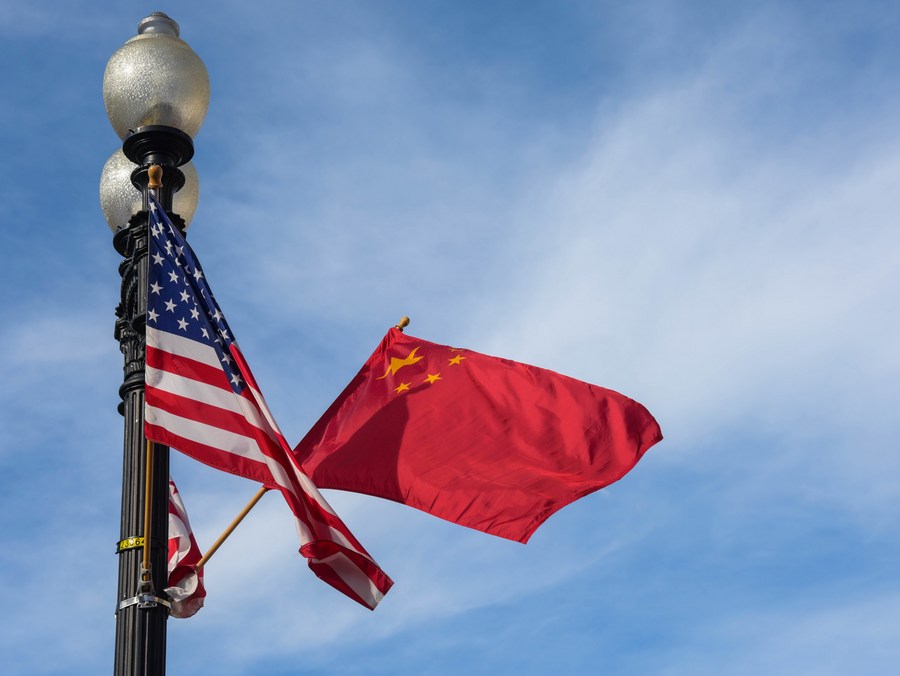By Xinhua writer Wang Bin
BEIJING, Feb. 20 (Xinhua) -- On Feb. 21, 1972, then U.S. President Richard Nixon visited China upon invitation, embarking on an "ice-breaking" journey attracting attention worldwide. During his visit, China and the United States reached an important consensus on principles for handling bilateral relations and published the Shanghai Communique, a major step forward in normalizing bilateral relations.
Looking back at history, the most fundamental reason why China and the United States were able to make the handshake across the Pacific Ocean was that both sides adhered to the principle of mutual respect and sought common ground while shelving differences.

File photo taken on Sept. 24, 2015 shows the national flags of China (R) and the United States as well as the flag of Washington D.C. on the Constitution Avenue in Washington, capital of the United States. [Photo by Bao Dandan/Xinhua]
With the future in mind, China and the United States should draw wisdom and strength from their "ice-breaking" history to bring ties back on track and work for the sound and steady development of bilateral relations.
As China and the United States are two major countries with different political systems and cultural backgrounds, it is normal to have divergences. This is the reality the two sides realized 50 years ago. However, for some time, certain U.S. politicians have viewed China-U.S. relations from a zero-sum game perspective and stirred up troubles unilaterally, making bilateral ties extremely difficult.
Hyping up ideological antagonism is an obvious infringement of the original intention of developing China-U.S. relations. Only by transcending divergences and seeking common interests can the two countries accord with the trend of history and the general expectations of the international community.
As both China and the United States have undergone tremendous changes over the past 50 years, it is imperative to view each other from a correct perspective for the two sides to continue co-existing peacefully. Whatever development stage China is in, China's goal has never been to threaten other countries. Instead, it aims to bring a better life to its people and promote the common development of all nations.
Some U.S. politicians who hype up the rhetoric of containment and competition against China are merely driven by the "anxiety disorder" from seeking hegemony. Such a practice won't help solve the problems faced by the United States and will only damage the interests of both countries and the world at large.
History and reality have fully proven that China and the United States stand to gain from cooperation and lose from confrontation. They can get many things done for the good of the two countries and the whole world when they cooperate with each other.
The multiple challenges faced by humanity demand cooperation among all countries, particularly China and the United States. As the two largest economies in the world and permanent members of the United Nations Security Council, China and the United States shoulder the major responsibilities for world peace, development and stability.
Under the current circumstances, the two countries should demonstrate a sense of responsibility, strengthen cooperation, and work with all countries to address the challenges and to inject more certainties and positive energy into a world witnessing many turbulences and changes.
History is the best textbook. Only by learning from the past can China and the United States make a better future for bilateral relations.

 中文
中文



